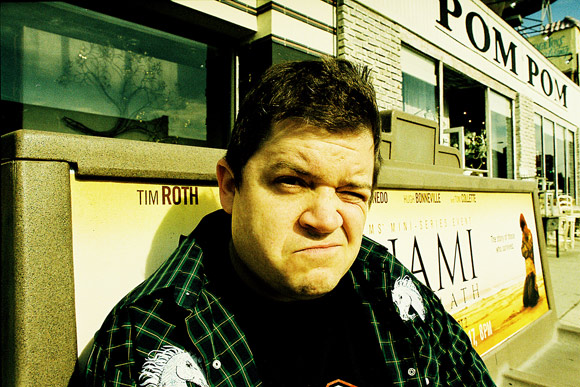Time to Die?

Last week comedian Patton Oswalt wrote an editorial for Wired magazine suggestively titled "Wake Up, Geek Culture. Time to Die." He makes the case that geek culture, long submerged in the subconscious of national (and global) culture, has clawed its way up into public consciousness, and that this rise is leading to its inevitable death. Geek culture, he posits, shrivels up in the sun, and can only thrive beneath the damp topsoil of the larger culture.
Admittedly, there’s a chilly thrill in moving with the herd while quietly being tuned in to something dark, complicated, and unknown just beneath the topsoil of popularity. Something about which, while we moved with the herd, we could share a wink and a nod with two or three other similarly connected herdlings.[…]
Fast-forward to now: Boba Fett’s helmet emblazoned on sleeveless T-shirts worn by gym douches hefting dumbbells. The Glee kids performing the songs from The Rocky Horror Picture Show. And Toad the Wet Sprocket, a band that took its name from a Monty Python riff, joining the permanent soundtrack of a night out at Bennigan’s. Our below-the-topsoil passions have been rudely dug up and displayed in the noonday sun. The Lord of the Rings used to be ours and only ours simply because of the sheer goddamn thickness of the books. Twenty years later, the entire cast and crew would be trooping onstage at the Oscars to collect their statuettes, and replicas of the One Ring would be sold as bling.
The topsoil has been scraped away, forever, in 2010. In fact, it’s been dug up, thrown into the air, and allowed to rain down and coat everyone in a thin gray-brown mist called the Internet. Everyone considers themselves otaku about something—whether it’s the mythology of Lost or the minor intrigues of Top Chef. American Idol inspires—if not in depth, at least in length and passion—the same number of conversations as does The Wire. There are no more hidden thought-palaces—they’re easily accessed websites, or Facebook pages with thousands of fans. And I’m not going to bore you with the step-by-step specifics of how it happened. In the timeline of the upheaval, part of the graph should be interrupted by the words the Internet. And now here we are.
What do you think? Is geek culture as it existed in the mid-to-late twentieth century gone forever? Is it better out in the open and in possession of Hollywood budgets, or does it thrive on poverty and a small and esoteric fan base?



















 Full Details
Full Details

